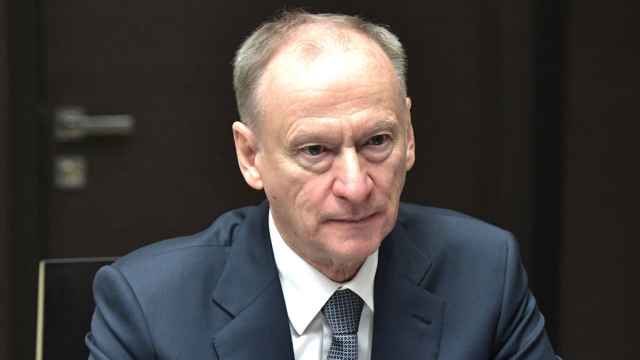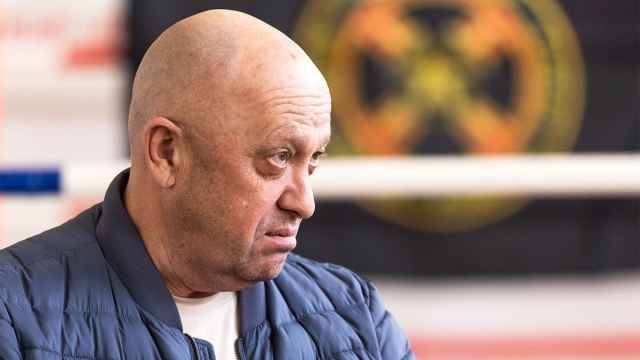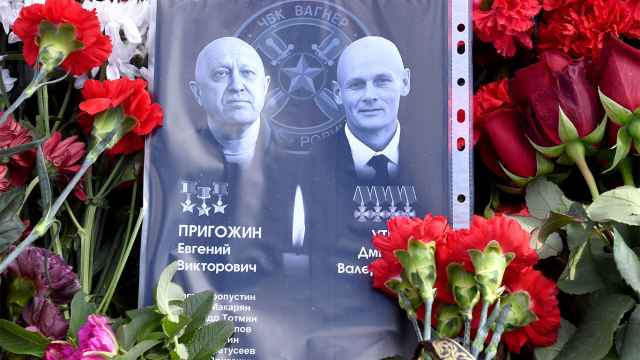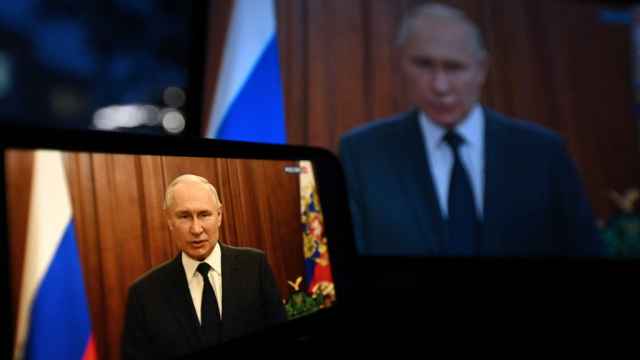The plane crash that presumably killed Yevgeny Prigozhin is expected to restore the image of President Vladimir Putin as Russia’s sole and unshakeable leader, whom no one can challenge with impunity following Wagner’s mutiny.
Yet Prigozhin’s fall will lead to the weakening of Russia’s forces in Ukraine, as well as its influence in the Middle East and Africa — where the Wagner mercenary group had for years worked to covertly advance the Kremlin’s geopolitical interests — four sources close to the Russian government told The Moscow Times.
All four sources spoke on condition of anonymity due to the sensitivity of the issue.
Prigozhin’s June 24 mutiny against Russia’s military leadership, which sparked the greatest domestic security crisis in Putin’s 23-year rule, ended in an agreement for him to stand down and move to neighboring Belarus in exchange for criminal immunity.
For many observers, Wednesday’s plane crash suggests that the Kremlin decided to ultimately renege on the deal.
His Embraer business jet, which was returning to Russia from Mali, crashed around 50 kilometers from Putin's residence in Valdai.
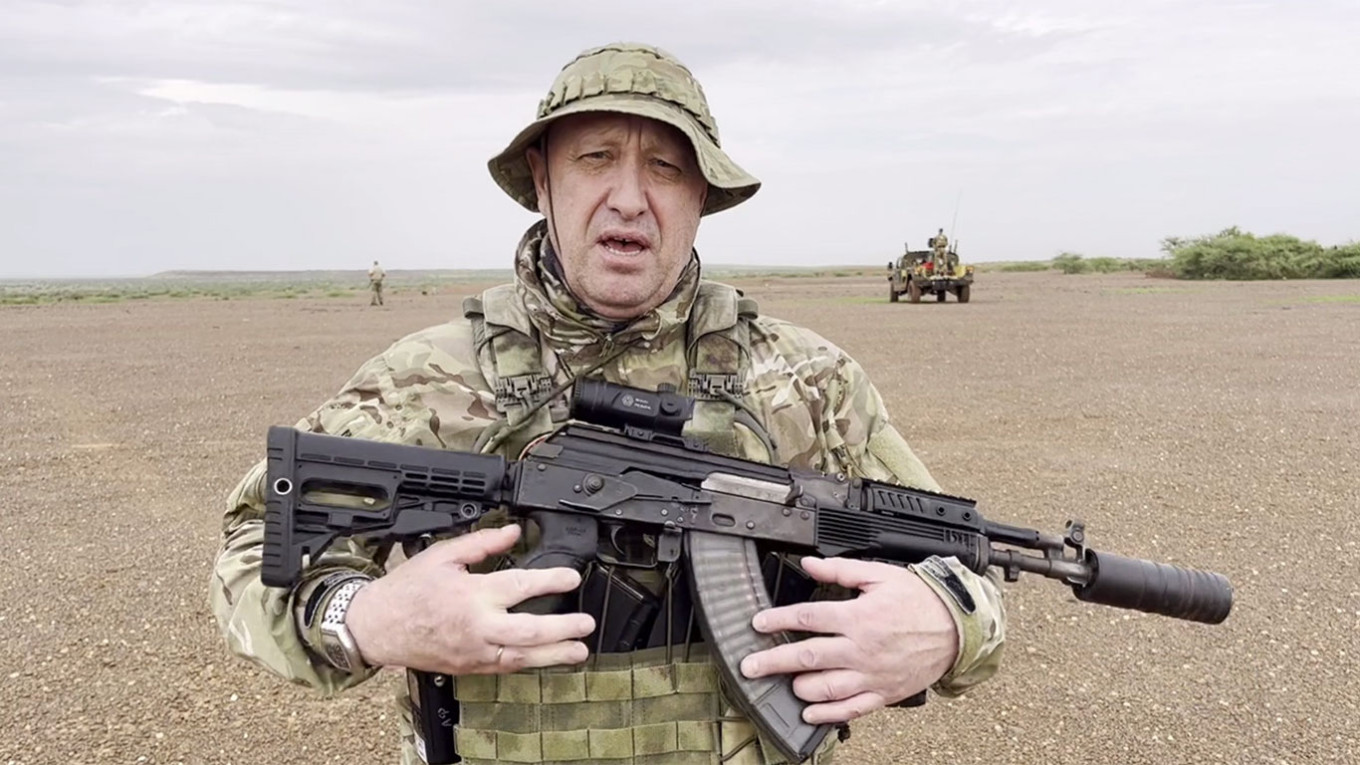
Independent media outlets were quick to suggest the plane crash was an act of retribution by the Kremlin, and even Putin personally, over Prigozhin’s direct challenge to the military. Meanwhile, state television provided only light coverage of the incident.
Putin made his first comments around a full 24 hours after the jet crashed — sending condolences to the families of those who perished and hailing Prigozhin as a “talented businessman” who had “made some serious mistakes in his life.”
"Wagner made a significant contribution to the fight against Nazism in Ukraine. We will not forget that," he said, invoking his justification for invading Russia’s pro-Western neighbor.
This casting of Prigozhin as a hero stands in stark contrast with remarks Putin made during the dramatic moments of Wagner’s armed rebellion, when he called the mercenary chief “a traitor” — the worst possible offense in the eyes of a president who demands the utmost loyalty.
The Russian government source said there should be no illusions about the Russian president's statement, however.
For Putin, it became evident that Prigozhin posed a threat to the ruling regime, and in his botched attempt to overthrow Defense Minister Sergei Shoigu, the Wagner chief personally disobeyed Putin, four sources in the Russian government told The Moscow Times.
Some analysts agree with this interpretation.
"Putin faces a predicament wherein his public image has soured and no longer aligns with Russia's desire for a strong and resolute leader, who swiftly achieves his goals with minimal costs and sacrifices. This shift occurred after he failed to seize all of Ukraine and the war entered a protracted stage," Oleg Ignatov, a senior analyst at the International Crisis Group, told The Moscow Times.
"It’s clear that Putin is losing to charismatic characters like Prigozhin, who are willing to speak the truth and accept things as they are," Ignatov said.
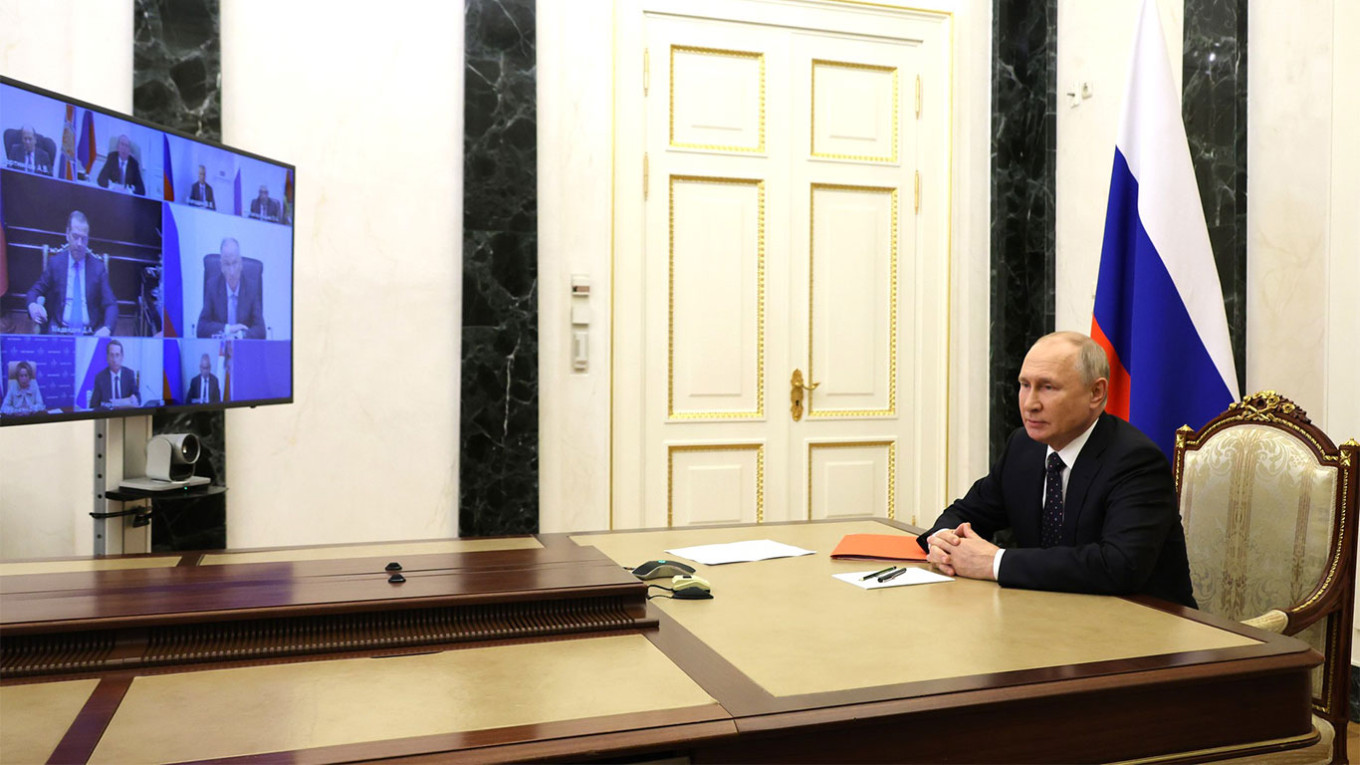
This had been a challenge for the Kremlin even before Prigozhin's failed rebellion. The Defense Ministry had come increasingly under fire for not waging the war in Ukraine aggressively enough, including from members of the political establishment, such as officials who hold conservative, anti-Western views.
"I do not believe in the military involvement of Ukraine, nor do I believe in the West’s involvement in [Prigozhin’s] demise. Prigozhin had competently built his security. This is a moronic decision of our authorities, made also during the war. Why?" a current Russian government official who previously served in the security services told The Moscow Times.
"I think the 'boss' [Putin] was afraid that Prigozhin would somehow miraculously pop up in the election. I don't believe it myself. But who knows what's in the tsar's head? His emotions could have taken over," a current Russian government official who previously served in the state security services told The Moscow Times.
Similar sentiments are shared among Russian servicemen fighting in Ukraine.
"We respect Wagner for his accomplishments — in Bakhmut, Syria, and Africa. They are fine men — calm, professional," a Russian contract serviceman who has fought in Ukraine since 2022 told The Moscow Times.
The Kremlin is aware that there is still a risk of armed mutinies and Russian special services are working to control and eliminate them, two sources close to the Kremlin and a Russian government official who formerly served in the special services told The Moscow Times.
"Now everyone is trying to keep as much distance as possible from any stories and projects related to the head of PMC Wagner. Especially those who had anything to do with the outfit and Prigozhin," a Russian official told The Moscow Times.
"The crash of Prigozhin's jet has left some people in a state of complete shock. Above all, those who had been in contact with him," a source in elite business circles told The Moscow Times.
The Kremlin will be unable to maintain Prigozhin’s business empire in its current form, according to two sources in the Russian government, from its hardened mercenary fighters who have seen combat in Ukraine, Africa and the Middle East, to its expanse of media outlets, journalists and political consultants.
"Everything was tied to [Prigozhin] personality — his charisma, relentless character and system of personal arrangements. All of this despite the fact that he was considered in Africa to be the Kremlin’s man,” said one source who has worked closely with Wagner.
Multi-billion-dollar contracts with the Russian state were the lifeblood of Prigozhin's business empire, which included lucrative projects in Africa, where structures linked to the Wagner leader have received the right to mine gold, diamonds, uranium, platinum and other precious resources.
Following Prigozhin’s armed mutiny in June, the Russian military moved swiftly to change how Russian private military companies in the Middle East and Africa are managed, said the source who has been on several missions on behalf of Wagner.
These efforts involved Russia’s military intelligence agency, the GRU, according to Bellingcat investigator Christo Grozev. In addition, Russian Deputy Defense Minister Yunus-bek Yevkurov visited Libya this week.
As Russia’s conventional army took heavy losses in Ukraine during the spring of 2022, the Kremlin hoped Prigozhin would reverse its fortunes. Wagner mercenaries began spearheading Russia’s war efforts, while the once-mercurial Prigozhin entered the limelight.
"With Prigozhin now gone, Wagner is unlikely to continue existing. I don’t think that even Putin himself is concerned about this. But many members of Wagner believe that the authorities may be responsible. And the authorities cannot ignore such risks," Ignatov from Crisis Group said.
"We know from history that Russia has a tradition of political terrorism. This is not guaranteed to happen But the authorities see the risk. And the security forces will keep a very close eye on the members of Wagner. Those whom the authorities consider the closest to Prigozhin — they will have to think about their personal safety," Ignatov said.
While Prigozhin appears to be gone, he leaves behind a reminder that there are alternatives to Putin’s regime — and the likelihood of another rebellion breaking out only grows as the war in Ukraine drags on.
"I think they ordered [to kill] him [Prigozhin]. Not the Ukrainians, but our own people. We are told it could have been the army leadership — Shoigu and Gerasimov. And who else? Who could he have messed with?" a Russian contract serviceman fighting under the Defense Ministry told The Moscow Times.
"If the truth comes out now, our guys won't keep quiet. I hope so. There will be a revolt in Moscow again, and it will be a violent one," he added.
A Message from The Moscow Times:
Dear readers,
We are facing unprecedented challenges. Russia's Prosecutor General's Office has designated The Moscow Times as an "undesirable" organization, criminalizing our work and putting our staff at risk of prosecution. This follows our earlier unjust labeling as a "foreign agent."
These actions are direct attempts to silence independent journalism in Russia. The authorities claim our work "discredits the decisions of the Russian leadership." We see things differently: we strive to provide accurate, unbiased reporting on Russia.
We, the journalists of The Moscow Times, refuse to be silenced. But to continue our work, we need your help.
Your support, no matter how small, makes a world of difference. If you can, please support us monthly starting from just $2. It's quick to set up, and every contribution makes a significant impact.
By supporting The Moscow Times, you're defending open, independent journalism in the face of repression. Thank you for standing with us.
Remind me later.




